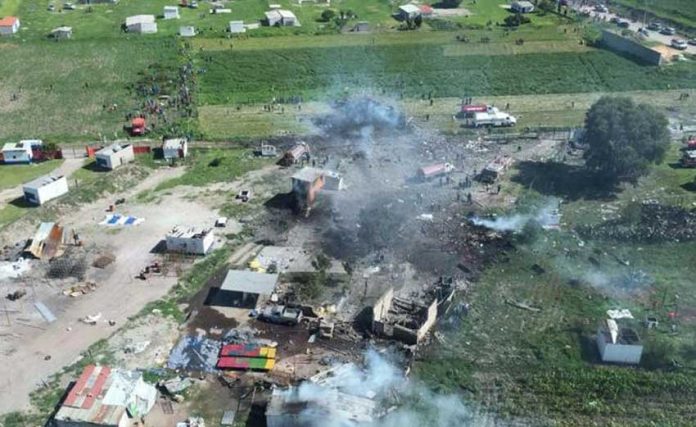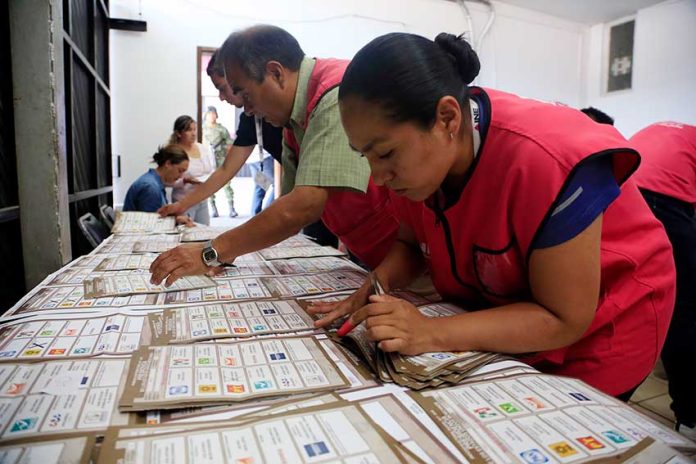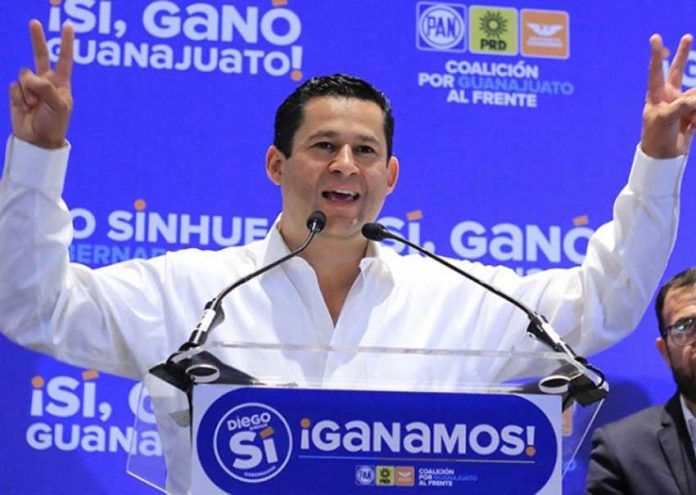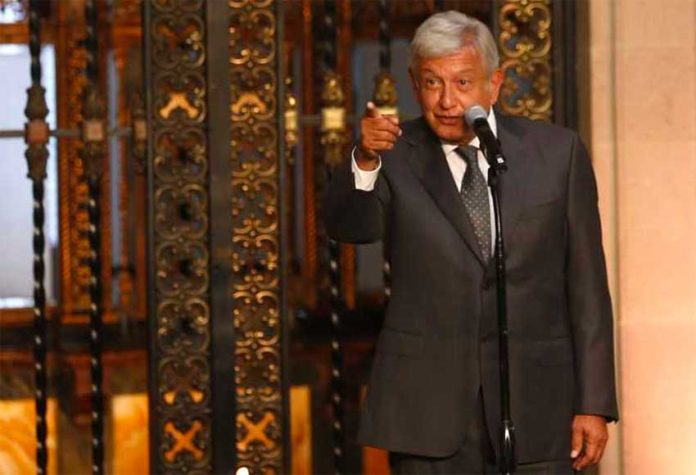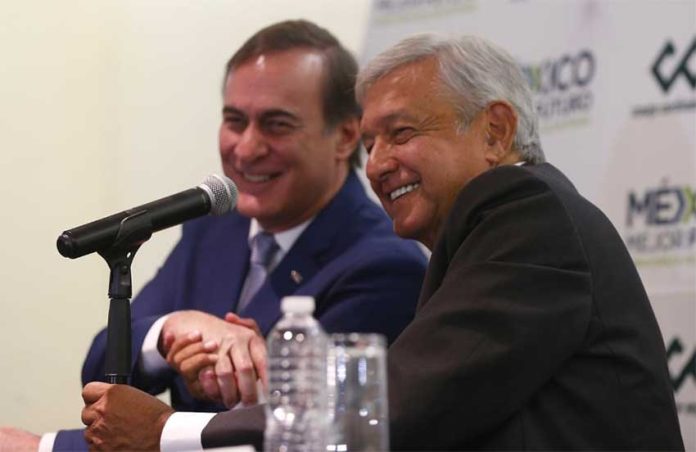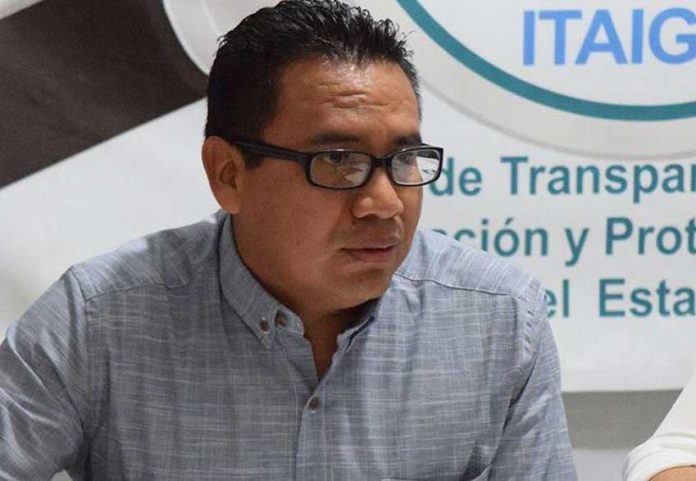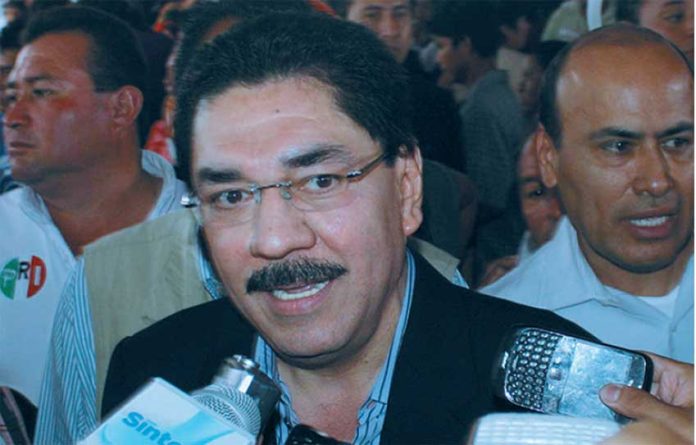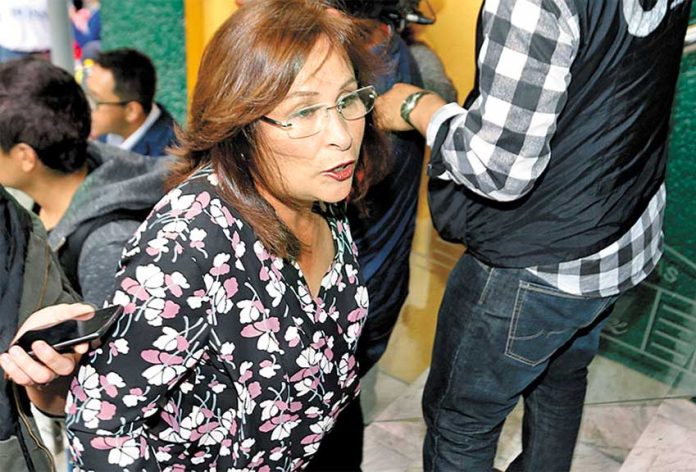Forgoing security is just one of several personal austerity measures that Andrés Manuel López Obrador says he will adopt when he is Mexico’s next president.
The 64-year-old leftist — who won last Sunday’s presidential election in a landslide — already eschews bodyguards and after meeting with President Enrique Peña Nieto yesterday, said he didn’t need personal security.
“The people will protect me . . . He who fights for justice has nothing to fear,” López Obrador told reporters at the National Palace.
“You’ll all be watching out for me,” he added during an interactive 35-minute press conference that contrasted sharply with Peña Nieto’s tightly controlled media appearances.
“We’re just reporters,” one journalist called out, according to a report published yesterday by the news agency Reuters, while another asked the president-elect if he would reconsider his security approach.
“This is the institution of the presidency of the republic, this isn’t just one person,” the reporter said.
Although López Obrador is adamant on the issue at present, a professor of public administration at the Colegio de la Frontera Norte in Tijuana believes that as president — and in the transition period — López Obrador may be forced to compromise.
“He should understand the risk, and that once he’s elected, he doesn’t owe it to himself but to the country,” Vicente Sánchez said.
“He has too much desire to go down in history as an austere figure, close to the people.”
But López Obrador, or AMLO as he is best known, said yesterday that Peña Nieto had offered him federal protection but he declined.
He also said that when he becomes president, the institution charged with protecting the president of Mexico — the Estado Mayor Presidencial — will be “completely” incorporated into the Secretariat of National Defense and “will not be responsible for guarding the president.”
During the campaign period and throughout his long political career, which has included runs at the presidency in 2006 and 2012, López Obrador has traveled the length and breadth of the country, venturing into drug cartel strongholds such as Chilapa, Guerrero, and Reynosa, Tamaulipas, where many other federal politicians, including the president, seem loath to go.
Despite not having bodyguards, he has also had no qualms about getting up close and personal with the people he sought to — and now will — represent.
In keeping with the “common man” image that he has cultivated for years — whether by driving himself to work in his Nissan Tsuru while mayor of Mexico City, refusing to fly first class or eating in humble fondas — AMLO has also pledged to live modestly as president and oversee an honest and responsible government.
Among the other austere and populist promises López Obrador has made is not to live in the president’s official residence, known as Los Pinos.
“I won’t live in a mansion of any kind,” he told supporters at a rally before the election in a hardscrabble neighborhood on the outskirts of Mexico City.
Yesterday, he reiterated that position and pledged to convert the residence into “a space for the arts and culture of the people of Mexico.”
AMLO has also committed to selling the presidential plane and before he was elected he often joked that he would sell it to United States President Donald Trump.
“I’m not going to travel in government airplanes, nor in helicopters. When I have to travel, I’ll do it as I always have, on commercial airlines,” he said.
López Obrador has also said that top officials in his government will be banned from traveling first class or in private aircraft.
“All this is going to end . . . we cannot have a rich government and a poor people.”
In addition, the president-elect has committed to slashing the presidential salary, drastically reducing pensions for past presidents and cutting the wages of officials who work in what he has called the burocracia dorada (golden bureaucracy).
“I’m going to earn half what Peña Nieto earns . . . and we are going to reduce the salaries of those who are on top so we can raise the salaries of those at the bottom,” López Obrador promised.
“The teachers will earn more, the nurses, the doctors, the cleaners, the police, the soldiers, the marines . . . the campesinos.”
Source: Reuters (en), Milenio (sp), EFE (sp), The Guardian (en)

